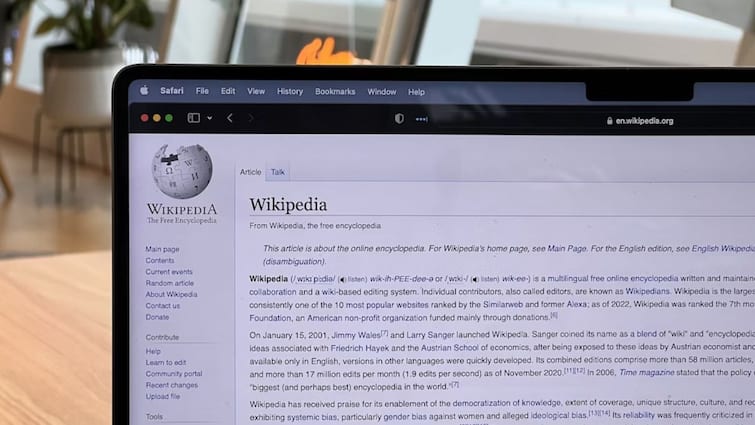Wikipedia, the free online encyclopedia, has seen an 8% drop in human pageviews compared to the same period in 2024. The Wikimedia Foundation, which runs the platform, said this fall is linked to the rise of generative AI tools, search engines, and social media that now give direct answers without sending users to the site.
The Foundation shared this update in a blog post on October 17, noting that global information habits are changing as technology grows smarter and more automated.
AI Chatbots & Search Engines Are Changing How People Find Information
According to the Foundation, many users no longer open Wikipedia pages directly. Instead, AI chatbots and search engines use their content to answer questions instantly.
This means people often get Wikipedia-sourced facts without visiting the site. The report also pointed out that younger audiences are turning more toward short-form video platforms like TikTok and YouTube rather than reading long articles on the open web.
In May 2025, the Foundation found that an unusual rise in traffic, especially from Brazil, was caused by bots pretending to be real users.
After reviewing its system, the team updated its detection methods, revealing that part of the earlier traffic wasn’t human. This helped refine how Wikipedia now measures genuine engagement.
Wikimedia Plans New Steps To Protect Growth & Keep Volunteers Engaged
The Foundation said falling traffic could affect volunteer growth and donations, both vital for keeping Wikipedia accurate and neutral.
To respond, it’s improving editing tools, building better mobile features, and making volunteer onboarding easier.
It’s also expanding projects for young audiences on platforms like TikTok, YouTube, Roblox, and Instagram to reach users where they already spend time.
Wikipedia remains one of the most-used sources for AI and research tools worldwide. The Foundation urged users and companies to credit and support original content, helping maintain a reliable and transparent knowledge-sharing space.



